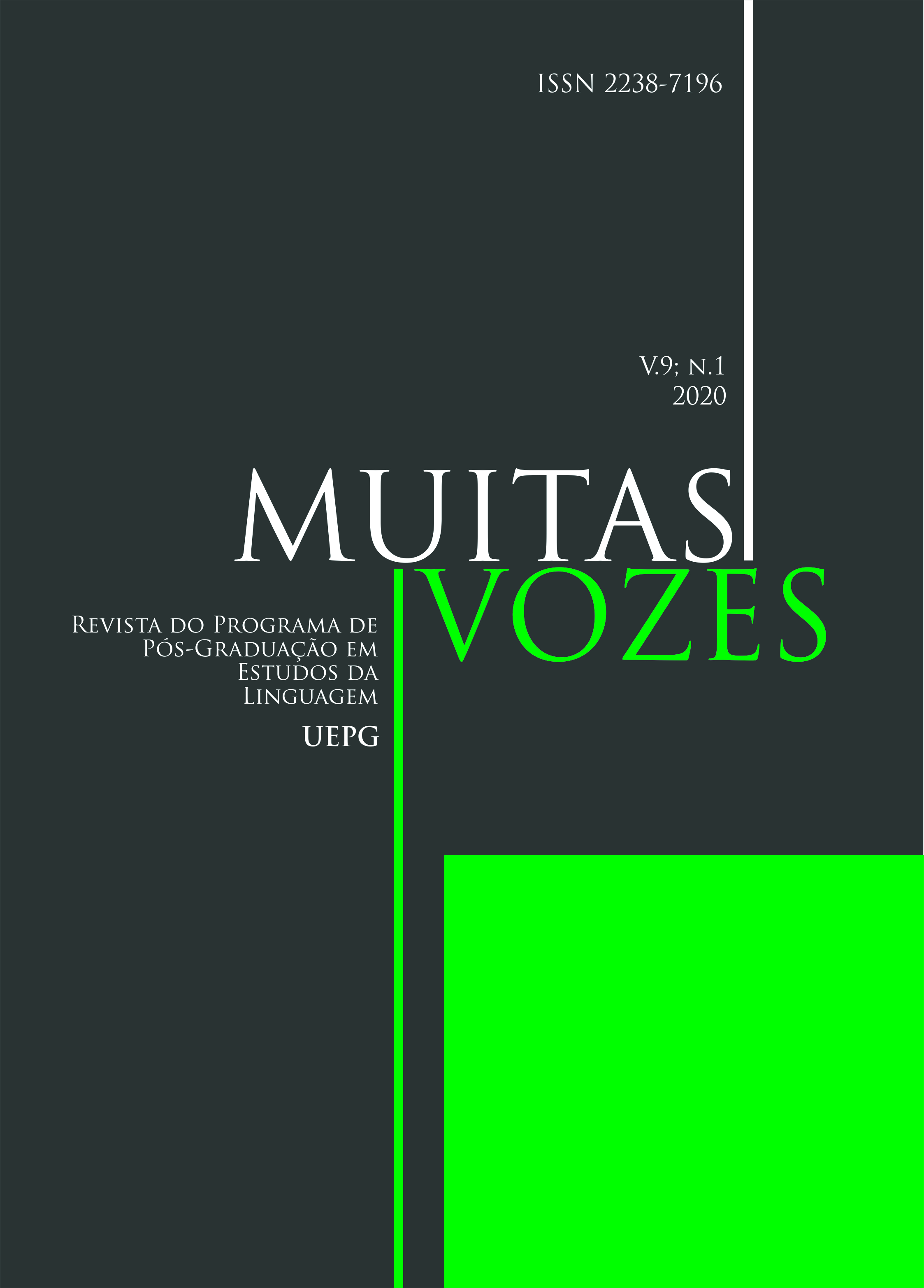GRAMÁTICAS E ENSINO DE LÍNGUA PORTUGUESA: ANÁLISE COMPARATIVA DA CLASSE DOS PRONOMES PESSOAIS
Résumé
Neste artigo, abarcamos três estágios das Gramáticas no ensino de Língua Portuguesa. Tendo em vista demonstrar como operam diferentes materiais, realizamos uma análise comparativa da classe “pronomes pessoais” em uma Gramática Tradicional, um Livro Didático e uma Gramática Científica. Atrelamos essa análise à apresentação dos seguintes contextos: a instauração da NGB, a proposição do PNLD e a produção de gramáticas por linguistas. A discussão dos dados demonstrou que, do ponto de vista das definições, há uma consonância entre a Gramática Tradicional e o Livro Didático, ambos pautados pela NGB. Já na Gramática Científica, diferentes tipos de pronomes são agrupados e apresentados como integrantes de diferentes processos que ocorrem na língua. Do ponto de vista das funções, o Livro Didático, assim como a Gramática Científica, ilustra a importância do contexto para a compreensão do funcionamento da classe de palavra em análise. Por sua vez, a Gramática Tradicional evidencia seu caráter prescritivista, pois, além de pautar-se majoritariamente em exemplos literários descontextualizados, apresenta usos dos pronomes considerados “errados”. Em conclusão, apontamos que não há um método ou manual gramatical definitivos para o ensino de Língua Portuguesa, mas sim obras que se complementam e podem ser utilizadas em conjunto para esse fim.
Téléchargements
Téléchargements
Publié-e
Comment citer
Numéro
Rubrique
Licence

Este obra está licenciado com uma Licença Creative Commons Atribuição 4.0 Internacional.
Transferência de direitos autorais: Caso o artigo submetido seja aprovado para publicação, JÁ FICA ACORDADO QUE o autor AUTORIZA a UEPG a reproduzi-lo e publicá-lo na REVISTA MUITAS VOZES, entendendo-se os termos "reprodução" e "publicação" conforme definição respectivamente dos incisos VI e I do artigo 5° da Lei 9610/98. O ARTIGO poderá ser acessado tanto pela rede mundial de computadores (WWW - Internet), como pela versão impressa, sendo permitidas, A TÍTULO GRATUITO, a consulta e a reprodução de exemplar do ARTIGO para uso próprio de quem a consulta. ESSA autorização de publicação não tem limitação de tempo, FICANDO A UEPG responsável pela manutenção da identificação DO AUTOR do ARTIGO.



